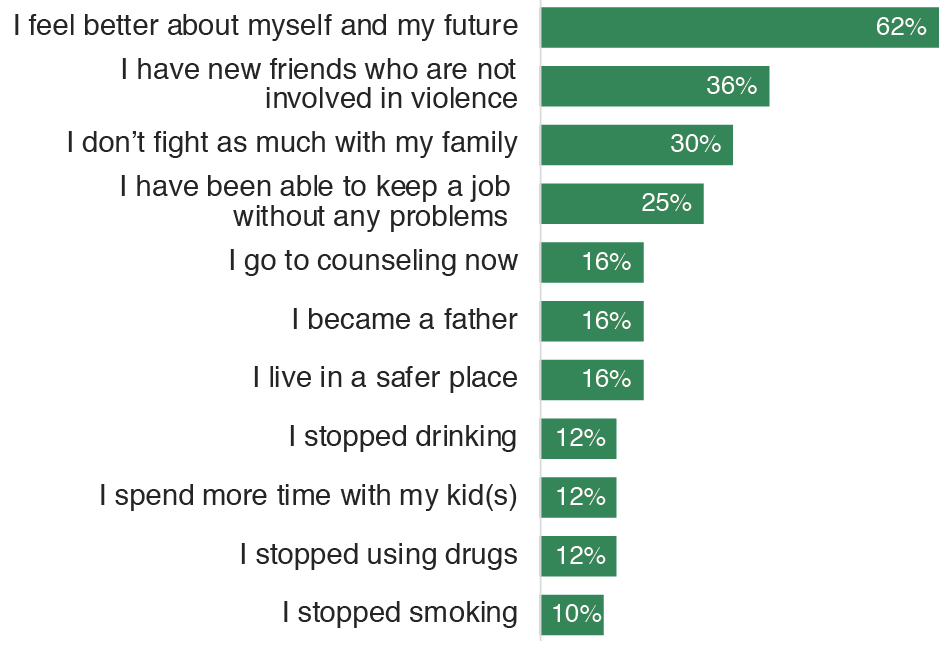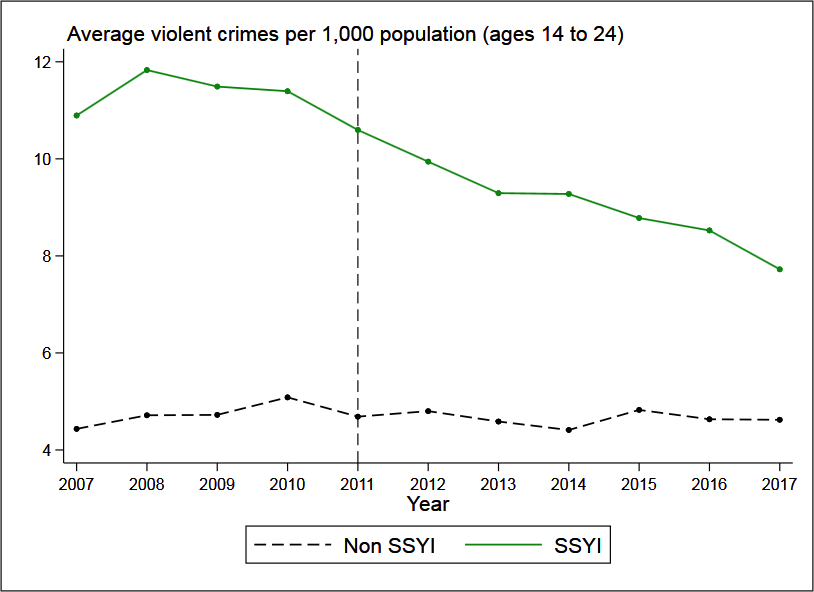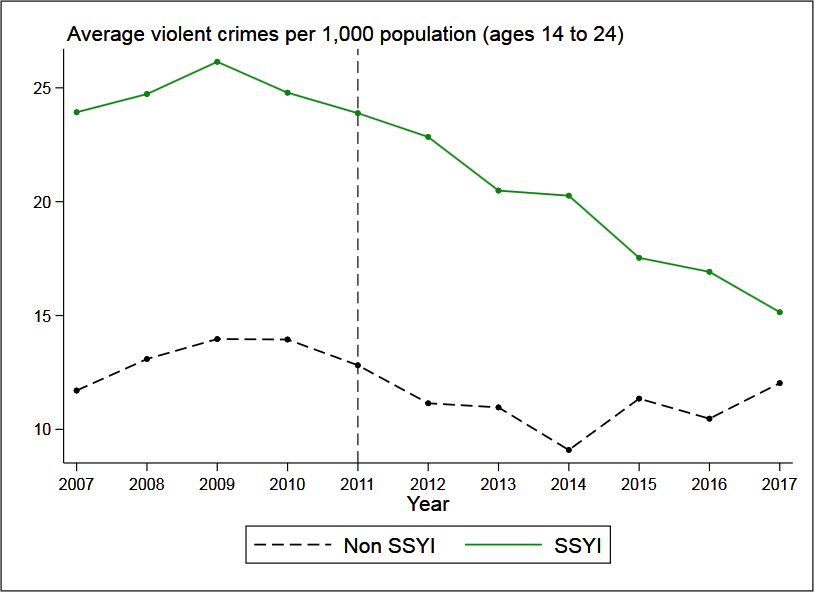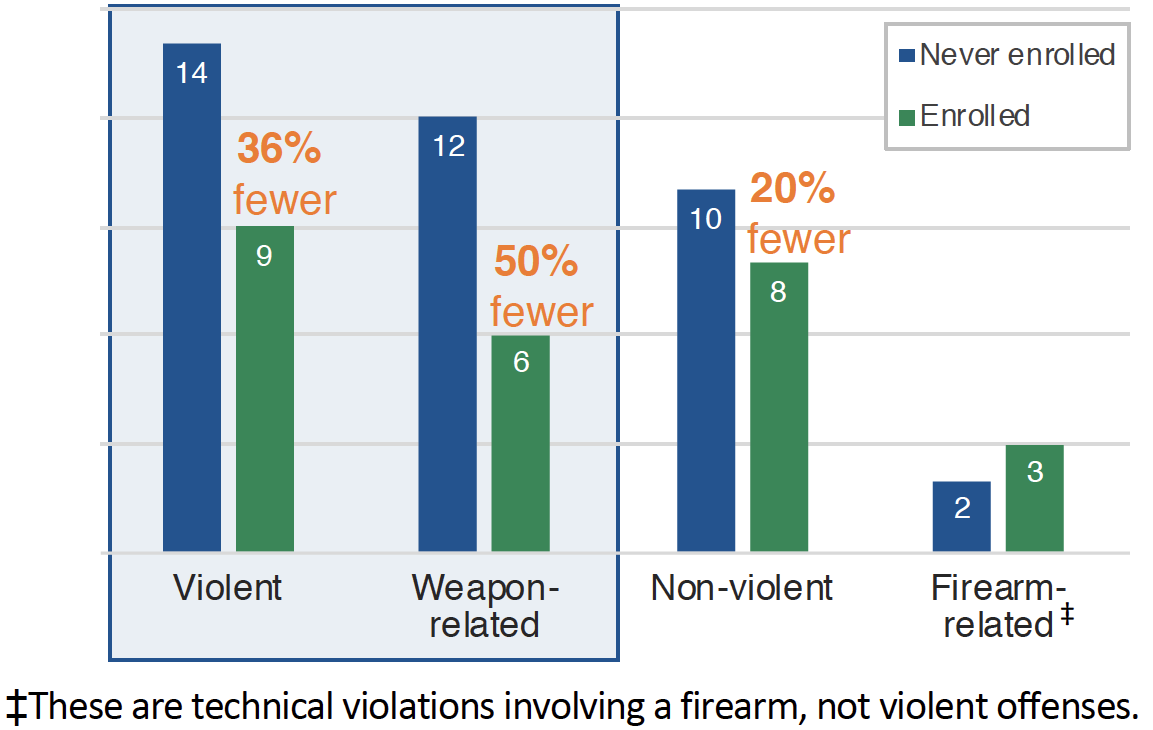The Safe and Successful Youth Initiative (SSYI) is a youth and young adult violence prevention and intervention initiative that operates in cities with the highest juvenile crime rates.
There were 815 fewer violent crime victims, ages 14 to 24,* in SSYI cities in 2018, resulting in annual cost savings of $38,243,359, against program expenditures of $7,549,079. For every $1 cities invested in SSYI, they saved $5.10 in victimization costs.
SSYI targets a small number of individuals, ages 17-24, that local police have identified as “proven risk” or “impact players.” These individuals are substantially gang-involved, most likely to be a victim or perpetrator of a violent weapons offense, or engaged in high volume illegal activity.
SSYI reaches out to these individuals and offers a chance to redirect their lives through educational, employment, and behavioral health services. Over 1,800 youth and young adults are involved with the program each year.
Since taking office, the Baker-Polito Administration has allocated over $27.9M for cities to implement SSYI. The Governor’s FY20 budget (H1) funded SSYI at $10 million, $1.9 million above FY19, an increase of 23% to help expand the program to young women.
CRIME IN SSYI CITIES
Between 2012 and 2017, cities with SSYI funding saw annual violent offenses decrease by as many as 2.2 offenses per 1,000 population and annual violent crime victimizations decrease by almost 3.2 victimizations per 1,000 population for ages 14 to 24.* While multiple efforts exist in cities to reduce violent crime, SSYI had a statistically significant impact on the reduction of annual violent offenses and victimization.
Violent criminal offense rates, per 1,000 population (all ages) in SSYI and non-SSYI cities.
Violent crime victimization rates, per 1,000 population (ages 14 to 24) in SSYI and non-SSYI cities.
SSYI CLIENT HISTORIES AND EXPERIENCES
After 2012, clients enrolled in SSYI had 36% fewer violent offenses, including 50% fewer weapon-related offenses, and 20% fewer non-violent offenses than did young men identified for the program who never enrolled.
Survey responses indicate clients experience positive life changes as a result of participating in SSYI.

Percent difference in average number of offenses in CORI data (n = 827)
Changes in SSYI clients’ lives since joining the program (n = 73)




